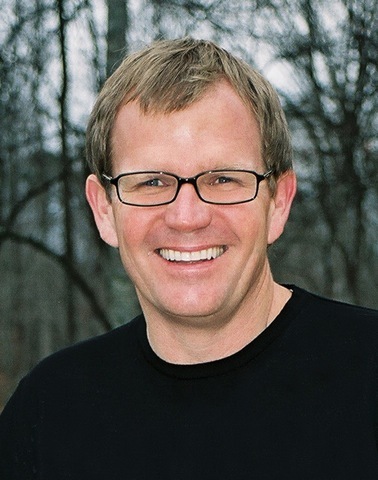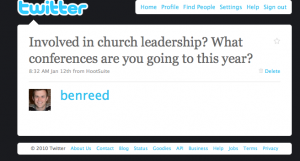I attended ReGroup last year. It was the first year for North Point in Atlanta, GA, to put on a conference dedicated solely to small groups. To be honest with you, it was one of the best conferences I’ve ever attended. It was so phenomenal that I’m going back this year, too. (October 21-22)
*Keep reading…promo code below.
North Point peeled back the curtain on what they do…and why they do it. They were generous, sharing the secrets they’ve learned over the last 17 years of ministry. I have been leading small groups for years, and I walked away with boatloads of ideas that I could implement. On top of that, the North Point team were incredibly gracious hosts. I really felt like an honored guest.
Which is 100% a byproduct of my friend, Bill Willits, executive director of environments at North Point, and small groups afficionado.
I sat down with Bill recently because I wanted you to hear from him why their conference this year is a must-go.
I tried to find a good picture of Bill, but they all made him look old and crotchety. Sorry. 🙂
1. Why did you guys decide to do a conference?
It wasn’t an easy decision to make because, first and foremost, we’re a local church. Our first priority is to do groups, not organize conferences about them. But the time was right. There are lots of conferences out there, but there seemed to be a void when it came to groups ministry. More than that, most conference presenters are thought leaders in their fields. While that is valuable, we think there’s something special about a conference for people doing ministry by people doing ministry.
We had a hunch that other ministries would benefit from what our Groups team has to share. We also knew that our Groups team would benefit from the opportunity to rub elbows with other folks from all over the world doing groups ministry. So, re:group was born.
2. Who would be the “perfect” person to come to re:group?
Re:group is for anyone who is trying to grow or start a groups ministry, as well as anyone just thinking about starting a groups ministry. Because we’re focused on how community is essential to life change, the conference can benefit a groups ministry of any size or at any stage.
3. What benefit will someone get out of attending?
While we’ll spend some time talking about the whys of groups ministry, most of the conference is about the hows. Anyone invested in small groups is going to come away from re:group with a lot of practical information about how to do what they do even better.
4. Why should someone choose this conference over any other given conference?
You know, we’re going to share what we’ve learned about doing groups ministry over the years, but re:group isn’t about North Point speaking from on high. We’re still figuring things out. We still have a ton to learn. Re:group is a conference where attendees can learn from us and from one another, while we learn from them. It’s just a great opportunity for ministry leaders from all kinds of backgrounds to come together and share their wisdom, knowledge, and experience.
Plus, Buckhead Church is a great venue for a conference and we’re going to have a lot of fun.
5. Why attend this conference and not just read your book, Creating Community?
First of all, we’ve learned and changed a lot since the book was published. The vision, mission, and values of our ministry haven’t changed but our model and programming have certainly matured. But more than that, one of the things that most excites me about re:group is the opportunity for attendees to interact with our Groups staff. They’re really great folks and they have a ton of accumulated knowledge and wisdom about creating a small groups ministry. Yes, read the book. But don’t miss the chance to connect with an amazing group of people who live and breath groups and who have helped us adapt, chance, and mature our groups strategy.
6. What area(s) of ministry will you be highlighting?
Between the main sessions and the breakouts, we’ll cover a lot of ground—getting people into groups, eliminating barriers to community, building effective ministry teams and strategies, and even measuring how well you’re achieving your ministry goals.
7. If someone comes to the conference, and uses the code (whatever discount code we’re going to use for my blog readers), can they stay at your house during the conference and have you cook us breakfast, Bill?
You really don’t want to eat my cooking. Seriously. And you’re a goofball.
Just for the readers of this blog, and just until Monday, September 16th, they’re extending the early bird rate. Just enter the promo code: BenReedPromo. Original, right?
$179 is a steal. You’ll walk away with information worth well, well more than that.
Register HERE for the conference on October 21-22.
Will I see you there?






